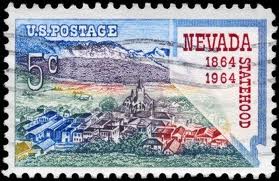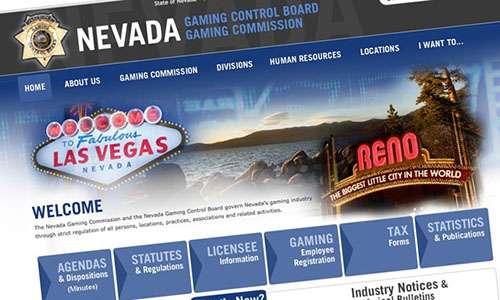Nevada Committee to Discuss Proposed DFS Legislation Next Week
It might just be slow shuffling right now, but it appears that there is some movement in the realm of daily fantasy sports (DFS) legalization in the state of Nevada. The Nevada Gaming Policy Committee (NGPC) has posted a draft of proposed DFS legislation on its website. Interestingly, the document was not written by any of the state’s lawmakers, but rather the two leading DFS sites, DraftKings and FanDuel.
 Unlike, say, Sheldon Adelson and his cronies, who are quite clearly the ones who wrote the Restoration of America’s Wire Act (RAWA) in an attempt to ban online gambling in the United States yet have tried to keep their identities as the authors of the bill a secret, DraftKings and FanDuel are not hiding at all. The title of the document is literally “PROPOSED NEVADA DAILY FANTASY SPORTS LEGISLATION
Unlike, say, Sheldon Adelson and his cronies, who are quite clearly the ones who wrote the Restoration of America’s Wire Act (RAWA) in an attempt to ban online gambling in the United States yet have tried to keep their identities as the authors of the bill a secret, DraftKings and FanDuel are not hiding at all. The title of the document is literally “PROPOSED NEVADA DAILY FANTASY SPORTS LEGISLATION
BY DRAFT KINGS AND FAN DUEL.”
This is also a different situation in that the companies are attempting to make something that U.S. citizens want to do legal, whereas Adelson wants to make a different enjoyed pastime illegal.
The draft legislation is slated to be discussed at a NGPC meeting on Tuesday, August 23rd, following an overview of DFS legislation in other states and an overview of the DFS laws in Nevada. After the legislation is presented, there will be talks about possible financial impact and then open dialog amongst committee members.
The proposed legislation itself is fairly basic. It defines a fantasy game much like laws in other states do, mirroring much of what was already laid out in the UIGEA back in 2006:
(h) “Paid fantasy game” means any fantasy or simulation game or contest that meets the following conditions:
1. The values of all prizes and awards offered to winning game participants are established and made known to the game participants in advance of the game or contest.
2. All winning outcomes reflect the relative knowledge and skill of the game participants and are determined predominantly by accumulated statistical results of the performance of individuals, including athletes in the case of sporting events.
3. No winning outcome is based on the score, point spread, or performance or performances of any single team or combination of teams, or solely on any single performance of an individual athlete or player in any single event.
4. The statistical results of the performance of individuals under subdivision 2 are not based on college or high school sports.
5. All game participants must pay, with cash or a cash equivalent, an entry fee to participate.6. Unless authorized by the Commission, no winning outcome is based on the accumulated statistical results of a performance by an individual or horse in a race or races at a meeting conducted in accordance with chapter 466.
The legislation, of course, requires that operators apply for and obtain a license from the state in order to offer paid fantasy games to residents of Nevada. Application fees would only be $500 and prospective operators must submit a written plan explaining the following:
• How they will identify the age and location of customers
• A plan for keeping player funds separate from operating funds
• Self-restriction options
• Prohibition of employees, directors, and company owners from playing on the site
• Prohibition of participants in the real life sporting events upon which the DFS games are based from playing in related contests
• Their methods for keeping financial information safe
• Methods for preventing employees from sharing game data with others until that information is publicly available
The proposed legislation stipulates that operators will be subject to an annual fee of the lesser of $10,000 or five percent of their gross fantasy revenues for the preceding twelve months.
Customers would have to be 18-years old or older to play on the DFS sites and DFS operators would be prohibited from advertising “exclusively” those under 18. This is subjective, but it would generally be pretty obvious if a DFS ad was targeting minors. Think Saturday morning cartoons commercial (even though Saturday morning cartoons are no longer a thing with the proliferation of 24/7 cartoons on cable networks – I just had this sad, nostalgic conversation with my daughter the other day) or a billboard across the street from a high school.
Though most gambling is legal in Nevada, the state was actually the catalyst for the mini-crusade against DFS sites by state governors and attorneys general around the country. In mid-October 2015, Nevada Gaming Control Board (GCB) Chairman A. G. Burnett declared that operators could no longer offer their services in the state without a DFS license. There did not seem to be any malicious in his notice to operators, but rather the simple determination that DFS was gambling and gambling concerns must be licensed.



















COMMENTS